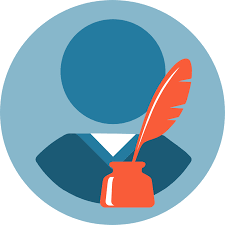It sounds like a ghost story – a text or article from a professor’s text or article for that matter, found online, placed into a blog, newspaper or on a discussion forum. However, the majority of the time, the piece of “expert” advice would actually be bogus, misleading, plagiarized or at best, erroneous.
A good example of such material would be if a university professor or another instructor published an essay online that was full of keywords and headings of their own articles. Other pieces of “expert” advice would come from college professors lecturing on topics that are not their area of expertise, or professors providing and/or endorsing content online that they themselves have never read. I could go on, but it would take up too much space.
As a result, many would say that the Internet is no longer a viable option to finding credible, valid and unbiased, expert advice from an unbiased source. Yet, what else can we do? Are we supposed to blindly believe everything that comes through a blog, blog post, or university instructor’s blog? Of course not.
What is required is the willingness to get out of the comfort zone in order to answer these very difficult questions that are popping up when it comes to online university education. Here are a few examples of the problematic material that many, including myself, are encountering.
First, you have to look at the use of the term “certification examination” in articles like the one above. Why would a university instructor offer and endorse material online that he himself has never taken and would not allow others to take when they are taking the exam that he himself won’t take.
Second, you need to ask yourself if such tips and hints and articles in the world of online university education could be helpful, meaningful, useful or even accurate. Should we really be surprised if a university professor didn’t make the grade on his first paper or assignment in college?
Lastly, online university e-mails are an essential resource for students who are on the cusp of taking their “first step” to “career change” in their chosen field. So, why would a university professor seek out “expert” advice from e-mail such as the one discussed in the article above?
These questions make me wonder if some of the professionals and/or professional advisors who provide guidance and teaching and guidance in online college classes are also a bit dishonest and even of a questionable nature. The most important thing to remember is to get out of the comfort zone and remember that one must be willing to be skeptical and ask the tough questions.
Here’s the bottom line, this is no way to go through life if you’re seeking to “earn” a degree or certificate. Be prepared and vigilant.
My advice is, if you want to earn a degree or certificate in any field for that matter, don’t get stuck and procrastinate answering these very difficult questions that will later come back to haunt you and cost you a lot of time and money, because of the fact that you might be doing more harm than good. Get out of the “comfort zone” and start asking the questions and doing the research that you should have done in the first place.
You can get an education easily online without risking your future. Start now!


